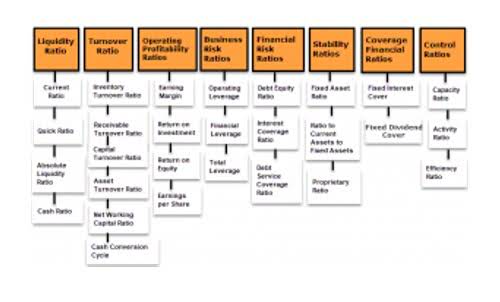
Implement the right accounting software for your firm to save time, work, and money. Gain a better understanding of your firm’s cash flow and ensure that every transaction is accurately recorded with proper supporting detail. Follow these rules and keep track of client funds every day to ensure you don’t cross any lines that can cause your firm serious problems. Anyone wanting to run a legit business should never combine personal and business expenses. Intermingling the two makes it nearly impossible to claim your expenses, not to mention track the financial wellness of your firm.
Both legal accounting and bookkeeping are integral to a law firm’s financial ecosystem. Effective legal accounting relies on accurate and comprehensive bookkeeping to inform its analysis and strategic decision-making. Firstly, it encompasses trust accounting, a fundamental aspect that requires law firms to manage client funds separately from the firm’s finances, ensuring Ethical and legal compliance. Trust accounting is integral to maintaining client trust and upholding the law firm’s reputation.
Why bookkeeping and accounting matter for law firms
Financial reports should include profit and loss statements, balance sheets, and cash flow statements, as well as law firm-specific reports that focus on billing, collections, and trust account management. Regularly reviewing and updating budgets, as well as analyzing financial reports, can help identify trends, uncover inefficiencies, and support informed decision-making for the firm’s financial well-being. Law firm accounting is a crucial aspect of running a successful legal practice, as it involves law firm bookkeeping managing the finances and ensuring compliance with ethical and legal obligations. As you dive into this topic, you’ll learn about the unique requirements, tools, and best practices to efficiently manage law firm accounting. With an understanding of law firm accounting, you will be able to keep your practice financially healthy while adhering to the rules and regulations governing the legal profession. Bookkeeping, on the other hand, is the day-to-day recording of financial transactions.
- If you’re not dealing with trust accounts, and just want to accept payments online or in-person, we recommend using Square.
- Select a financial institution that offers FDIC-insured accounts and has robust online banking capabilities to facilitate easy tracking and management of transactions.
- This is especially important when it comes to paying mandatory disability or worker’s compensation insurance.
- You’ll also want to decide how your firm will track incoming and outgoing funds.
- Additionally, staying updated with educational resources on the Clio Accounting Hub can provide insights into maximizing tax deductions specific to legal practices.
CPAs can provide valuable guidance in collecting, interpreting, and using financial data to help the firm stay compliant, prepare financial statements, and file accurate tax returns. When it comes to managing a law firm’s finances, selecting the right accounting software is crucial. There are numerous options available on the market, each with its own unique features and capabilities. Some popular accounting software choices include QuickBooks, Xero, and Clio, all of which cater to the specific needs of law firms. This technological advancement not only simplifies the complexities of legal accounting but also empowers law firms to focus on their core mission—delivering exceptional legal services. Effective accounting for law firms is critical to your firm’s success.
Recording Trust Accounts as Income
It’s best to work with a CPA who has experience working with law firms. Any CPA should be willing to sit down with you for a free consultation. Whether you’re a small law firm or large, follow the steps in this guide, and get on the path to financial clarity and success. Accounts receivables, also known as A/R, are amounts owed to you by clients. Staying on top of receivables is essential to the financial health of your business.
- Anyone wanting to run a legit business should never combine personal and business expenses.
- It allows for more meaningful financial management that isn’t influenced by the ups and downs of cash flow.
- By now, you know you can’t simply create a financial strategy and budget and sit back and relax.
- To avoid this type of situation, use accounting software that allows you to automate these processes.
- Consistency allows for better decision-making based on up-to-date financial information, thereby fostering the overall success and stability of the law firm.
- The cost of bookkeeping services can vary depending on the size of your business and the features you need.
In contrast, legal bookkeepers focus on the day-to-day management of financial records. They make sure that every financial transaction is accurately recorded and that the firm’s financial operations run smoothly. Both roles are crucial; bookkeepers maintain the financial groundwork, while CPAs build upon this foundation to offer comprehensive financial management. The right accountant can help navigate complex tax regulations and provide valuable insights into managing your law firm’s finances effectively. It offers simpler online accounting solutions, making it easier for law firms to manage their finances efficiently and effectively.
Keep Track of Miscellaneous Expenses
You can also use this information to identify what parts of your practice are most and least successful—so you can more thoughtfully allocate resources to stimulate future growth. Finding the right staff member requires asking the right interview questions. You need to know specific things about your potential hire to honestly know if they are up to handling your bookkeeping needs.
When implementing a legal accounting strategy in your firm, there is plenty to consider. From creating a budget, choosing the right bank, hiring the correct advisors, and deciding on which type of accounting your firm will do—it all can feel overwhelming. Law firms of all sizes in the Am Law 200 are racing to invest in generative AI technology, including regional and Second Hundred law firms competing with higher-grossing law firms with more resources. Top law firms are rushing to target new recruits, often before students have finished their first year.
